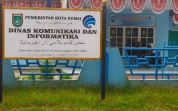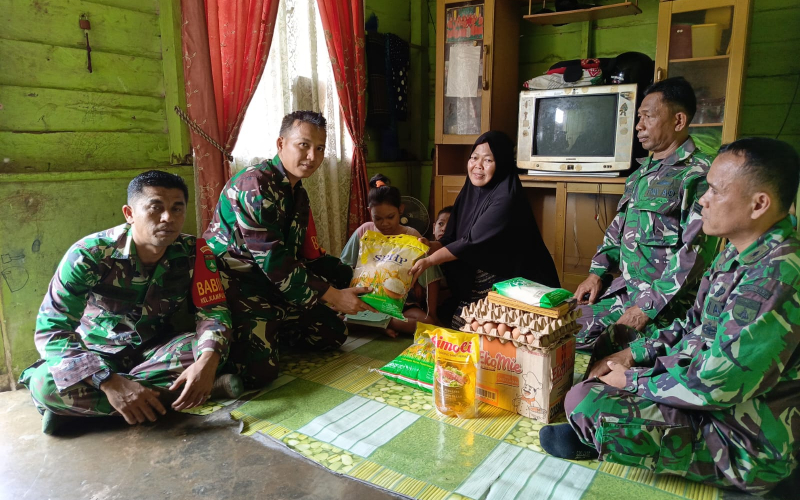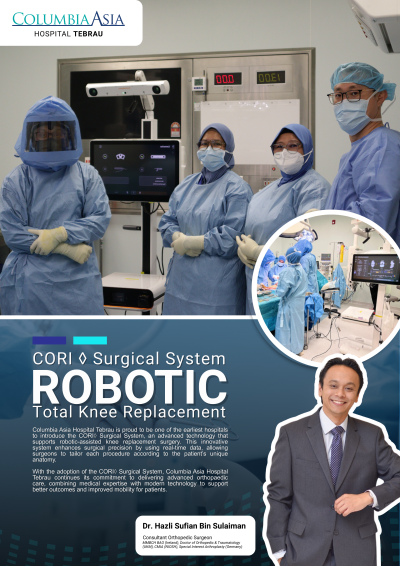SHANGHAI - Aug. 12, 2024 (GLOBE NEWSWIRE) -- Shanghai Junshi Biosciences Co., Ltd (Junshi Biosciences, HKEX: 1877; SSE: 688180), a leading innovation-driven biopharmaceutical company dedicated to the discovery, development, and commercialization of novel therapies, announced that the National Medical Products Administration (NMPA) has accepted for review the supplemental new drug application (sNDA) for toripalimab (trade name: TUOYI®, product code: JS001) for the first-line treatment of unresectable or metastatic melanoma.
Melanoma is the most malignant type of skin cancer. According to the 2022 GLOBOCAN Report, approximately 332,000 new melanoma cases and approximately 59,000 deaths were recorded globally that year. Though melanoma is relatively uncommon in China, its mortality rate is high (5,000 deaths amongst approximately 9,000 new cases in 2022) and its incidence rate is rising year by year. So far, anti-PD-1 monoclonal antibodies have only been approved for the second-line or beyond treatment of advanced melanoma in China, however, the first-line standard treatment of advanced melanoma is still dominated by traditional chemotherapy or targeted therapy (limited to patients with BRAF V600 mutation). Therefore, there is an urgent clinical need for first-line immunotherapy options for patients with advanced melanoma in China.
The sNDA is mainly based on the MELATORCH study (NCT03430297), a multi-center, randomized, open-label, positive-controlled Phase III clinical study. It is China’s first and only pivotal registrational clinical study of a PD-(L)1 inhibitor as a first-line treatment for advanced melanoma that has yielded positive results, and was designed to compare the efficacy and safety of toripalimab with dacarbazine for the first-line treatment of systemic treatment-naïve patients with unresectable or metastatic melanoma. The study was led by Principal Investigator Professor Guo Jun from Peking University Cancer Hospital in 11 clinical centers across the country.
In September 2023, MELATORCH’s primary endpoint of progression-free survival (“PFS,” based on independent radiological review) met the pre-defined efficacy boundary. The results showed that compared with dacarbazine, toripalimab as the first-line treatment for unresectable or metastatic melanoma significantly prolonged the PFS of patients. The safety profile of toripalimab is comparable to that of prior studies, and no new safety signals were identified. The detailed data of this study will be presented by Junshi Biosciences at an upcoming international academic conference.
Principal Investigator and Chairman of CSCO Experts Committee on Malignant Melanoma, Professor Jun GUO from Beijing Cancer Hospital, said, “Within the last 5 years, toripalimab has become the standard therapy for second-line and beyond salvage treatment of advanced melanoma in China, which significantly altered the treatment landscape and offered groundbreaking survival benefits to many Chinese patients. However, we also recognize that treating Chinese melanoma patients presents greater challenges than treating Caucasian melanoma patients. Thus, despite PD-1 inhibitors being approved internationally for first-line treatment of melanoma and even as adjuvant therapy for early-stage patients, no immune checkpoint inhibitor has yet been approved for these indications in China. The acceptance of toripalimab’s sNDA is proof of its value and importance in earlier line treatment. We eagerly anticipate its approval, as it would allow Chinese melanoma patients to benefit from immunotherapy even earlier.”
“In 2018, toripalimab made history as the first domestically developed anti-PD-1 monoclonal antibody approved for second-line and beyond treatment of advanced melanoma, leaving its brilliant mark in China’s pharmaceutical and biotech development,” General Manager and CEO of Junshi Biosciences, Dr. Jianjun ZOU, said. “Today, our efforts continue with the NMPA’s acceptance of the 12th sNDA for toripalimab, and toripalimab is poised to become China’s first immunotherapy for melanoma. We will work closely with regulatory authorities to provide better clinical treatments to patients as soon as possible.”
About Toripalimab
Toripalimab is an anti-PD-1 monoclonal antibody developed for its ability to block PD-1 interactions with its ligands, PD-L1 and PD-L2, and for enhanced receptor internalization (endocytosis function). Blocking PD-1 interactions with PD-L1 and PD-L2 promotes the immune system’s ability to attack and kill tumor cells.
More than forty company-sponsored toripalimab clinical studies covering more than fifteen indications have been conducted globally by Junshi Biosciences, including in China, the United States, Southeast Asia, and Europe. Ongoing or completed pivotal clinical trials evaluating the safety and efficacy of toripalimab cover a broad range of tumor types, including cancers of the lung, nasopharynx, esophagus, stomach, bladder, breast, liver, kidney, and skin.
In the Chinese mainland, toripalimab was the first domestic anti-PD-1 monoclonal antibody approved for marketing (approved in China as TUOYI®). Currently, there are eight approved indications for toripalimab in the Chinese mainland:
- unresectable or metastatic melanoma after failure of standard systemic therapy;
- recurrent or metastatic nasopharyngeal carcinoma (NPC) after failure of at least two lines of prior systemic therapy;
- locally advanced or metastatic urothelial carcinoma that failed platinum-containing chemotherapy or progressed within 12 months of neoadjuvant or adjuvant platinum-containing chemotherapy;
- in combination with cisplatin and gemcitabine as the first-line treatment for patients with locally recurrent or metastatic NPC;
- in combination with paclitaxel and cisplatin in first-line treatment of patients with unresectable locally advanced/recurrent or distant metastatic esophageal squamous cell carcinoma (ESCC);
- in combination with pemetrexed and platinum as the first-line treatment in EGFR mutation-negative and ALK mutation-negative, unresectable, locally advanced or metastatic non-squamous non-small cell lung cancer (NSCLC);
- in combination with chemotherapy as perioperative treatment and subsequently with monotherapy as adjuvant therapy for the treatment of adult patients with resectable stage IIIA-IIIB NSCLC;
- in combination with axitinib for the first-line treatment of patients with medium to high risk unresectable or metastatic renal cell carcinoma (RCC);
- in combination with etoposide plus platinum for the first-line treatment of extensive-stage small cell lung cancer (ES-SCLC);
- in combination with paclitaxel for injection (albumin-bound) for the first-line treatment of recurrent or metastatic triple-negative breast cancer (TNBC).
The first six indications have been included in the National Reimbursement Drug List (NRDL) (2023 Edition). Toripalimab is the only anti-PD-1 monoclonal antibody included in the NRDL for the treatment of melanoma. In April 2024, the Drug Office at the Department of Health in the Government of the Hong Kong Special Administration Region (DO) accepted the NDA for toripalimab in combination with cisplatin and gemcitabine for the first-line treatment of adults with metastatic or recurrent locally advanced NPC, and for toripalimab, as a single agent, for the treatment of adults with recurrent, unresectable, or metastatic NPC with disease progression on or after platinum-containing chemotherapy.
In the United States, the US Food and Drug Administration (FDA) has approved the Biologics License Application for toripalimab in combination with cisplatin and gemcitabine for the first-line treatment of adults with metastatic or recurrent locally advanced NPC, and for toripalimab, as a single agent, for the treatment of adults with recurrent, unresectable, or metastatic NPC with disease progression on or after platinum-containing chemotherapy in October 2023. The FDA has granted toripalimab 2 Breakthrough Therapy designations for the treatment of NPC, 1 Fast Track designation for the treatment of mucosal melanoma, and 5 Orphan Drug designations for the treatment of esophageal cancer, NPC, mucosal melanoma, soft tissue sarcoma, and small cell lung cancer (SCLC).
In Europe, marketing authorization applications (MAA) were accepted by the European Medicines Agency (EMA) and the UK Medicines and Healthcare products Regulatory Agency (MHRA) for 1) toripalimab combined with cisplatin and gemcitabine for the first-line treatment of patients with locally recurrent or metastatic NPC and 2) toripalimab combined with paclitaxel and cisplatin for the first-line treatment of patients with unresectable locally advanced/recurrent or metastatic ESCC, in December 2022 and February 2023.
In Australia, the new chemical entity (NCE) application was accepted by the Australia Therapeutic Goods Administration (TGA) in November 2023. The TGA has also granted toripalimab an Orphan Drug designation for the treatment of NPC.
In Singapore, the NDA application was accepted by the Singapore Health Sciences Authority (HSA) in January 2024. The HSA has also granted priority review designation for the NDA.
About Junshi Biosciences
Founded in December 2012, Junshi Biosciences (HKEX: 1877; SSE: 688180) is an innovation-driven biopharmaceutical company dedicated to the discovery, development and commercialization of innovative therapeutics. The company has established a diversified R&D pipeline comprising over 50 drug candidates, with five therapeutic focus areas covering cancer, autoimmune, metabolic, neurological, and infectious diseases. Four of the company’s innovations have already reached the Chinese or international markets, one of which is toripalimab, China’s first domestically produced and independently developed anti-PD-1 monoclonal antibody, approved in China and the US. Additionally, more than 30 drugs are currently in clinical development. During the COVID-19 pandemic, Junshi Biosciences actively shouldered the social responsibilities of a Chinese pharmaceutical company through its involvement in developing etesevimab, MINDEWEI®, and other novel therapies for the prevention and treatment of COVID-19.
With a mission of “providing patients with world-class, trustworthy, affordable, and innovative drugs,” Junshi Biosciences is “In China, For Global.” At present, the company boasts approximately 3,000 employees in the United States (San Francisco and Maryland) and China (Shanghai, Suzhou, Beijing, Guangzhou, etc.).













